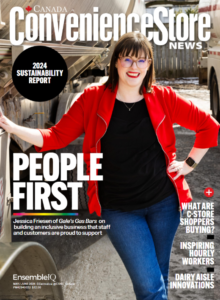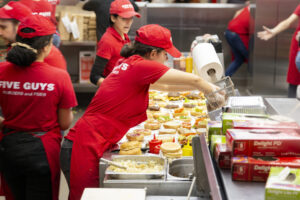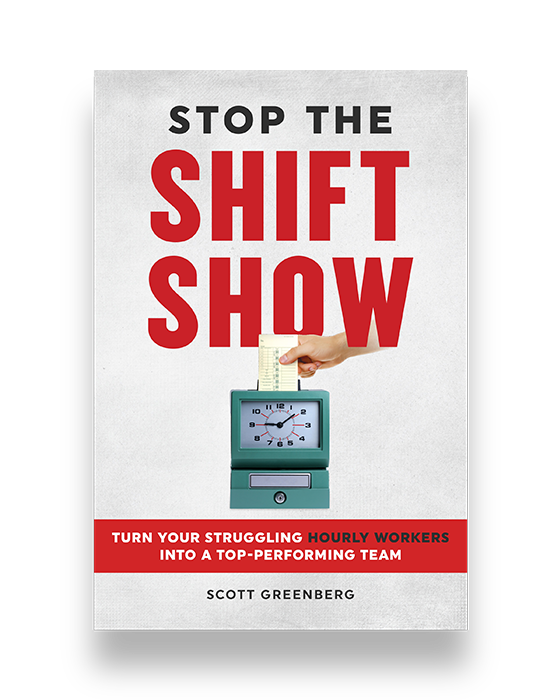Some time ago, a friend forwarded me an article about the Amazon warehouse workers in Alabama and their unsuccessful attempt to unionize. Since I’m a motivational franchise speaker, he asked me how often movements like this emerge in the franchise industry. This wasn’t the first time I’ve had to explain to someone that franchise brands are not monolithic business entities with a single workforce, but networks of independent business owners who employ their own teams.
However, it’s not uncommon for owners themselves to form franchisee associations. Like unions, they represent their members and vary in terms of influence and functionality. Some are robust, productive organizations and others not so much. As with any group of people, there are many social dynamics that impact collaboration. This is the stuff I find fascinating.
All of my work is on the human elements of franchising. That includes the mindset of individual franchisees and the cultures of franchise organizations. These things matter. The best recipes and smartest systems can’t compensate for fear, mistrust and poor communication. In an industry deeply reliant on cooperation, these troubling human factors can cripple an otherwise sound business model. But the opposite is also true. When franchisee associations and their corporate partners work well together, their brand can accomplish great things.
The problem is that culture is less tangible than revenue. Many people in the franchise world (and for that matter, most industries) are too focused on operations, marketing and sales to think about the social dynamics within their brand. Things are moving quickly. Decisions need to be made. Fires need to be put out. With so much to do, culture is often an afterthought. That leads to problems.
The media loves to report on conflicts between franchisee associations and franchisors, giving the impression this business arrangement is inherently tumultuous. However, there’s another side to the story. Many franchisee associations work well with their corporate partners and are formed for reasons other than litigation.
“Our organization was formed for collaboration, not litigation,” says Tad Mollnhauer, franchisee with The UPS Store and Executive Director of The National TUPSSO Franchise Owners Association. “I originally joined as a franchisee in order to connect with fellow owners and to share ideas with others in the same business.”
A similar sentiment was echoed by Jeff Acton, Round Table Pizza franchisee and President of the Round Table Owners Association (RTOA). He told me they formed decades ago as a “loose confederation of franchisees who wanted to put in place a system for owner collaboration the fledgling franchisor had yet to provide.” It still functions today with a primary focus of sharing ideas and providing mutual support.
Of course, many franchisee associations do emerge as a result of disagreements, often with the help of lawyers. Some of these movements are comprised of a handful of disgruntled franchisees. Other represent a large swath of owners with legitimate concerns. Some form to address a single issue and others are set up for long-term function.
Regardless of why franchisee associations form, both parties need to do their part to support the brand and contribute to a healthy culture.
Prevention is the best medicine
If franchisors put in place a platform for franchisees to be heard, operate with transparency and concentrate on both top line and bottom-line profitability, it’s unlikely an association will form. That’s what Red Boswell, former CEO and Founder of Pet Butler, did from the very beginning.
“A franchisor is always better off being proactive rather than reactive,” he told me. “You can dodge a lot of pain if you do it right.”
Boswell and his team created a strong franchise advisory council (FAC) early on and gave the franchisee members the largest number of votes to determine which franchisees would replace them on the council. The franchisor knew it was important for franchisees to feel well represented and to have a say in who would do the representing.
They also invited all franchisees to submit discussion topics for FAC meetings and then had franchisee-recorded minutes distributed to the entire network. “We wanted total transparency so franchisees knew their ideas and concerns were being considered,” adds Boswell, who is currently President of International Franchise Professionals Group (IFPG), whose focus is on connecting prospective business owners with franchise brands.
I asked him if the existence of a franchisee association is something that should be considered when evaluating an opportunity. “Absolutely,” he told me. “But what matters isn’t if franchisees have formed an association, but how well the association and the franchisor work together. That’s a foundational component of the validation process.”
Diffusing anger and building trust
Sometimes new leadership takes over a brand where a franchisee association already exists, possibly inheriting tensions formed with previous management. Building trust with franchisees should be the new franchisor’s top priority. That’s what happened with Dunkin’.
“At Dunkin we lived through having the worst franchisee-franchisor relationship in the industry to the best in the industry,” says Rob Branca, Dunkin’ franchisee and former Chair of Dunkin Donuts Independent Franchisee Owners (DDIFO).
His franchisor is equally proud of the culture they’ve recreated. “We always say that our number-one asset is our relationship with our franchisees,” says Scott Murphy, Head of Beverage & Snacking, Inspire Brands and President of Dunkin’. “We recognize that we need each other to be successful, and we stay focused on driving franchisee profitability, which in turn fuels system growth.”
An example of their great partnership at work was the introduction of Dunkin’s K-cup pods. The coffee product was originally offered in-store only. When Dunkin’ explored widening distribution to grocery chains, franchisees were concerned the move would negatively impact in-store sales. Dunkin’ and franchisees worked together to create a revenue split to everyone’s satisfaction.
They’ve also collaborated well to meet the challenges presented by Covid-19. “The strength of our franchisor/franchisee relationship has probably never been more evident than this past year as we worked our way together to navigate the incredibly challenging environment caused by the pandemic,” says Scott Murphy. “I attribute much of our success this past year, as well as the ongoing strength of our relationship, to our incredibly effective franchise advisory council system, which operates at the national, regional and local level and is comprised of franchise leaders who are elected by their peers to provide advice and counsel on topics ranging from marketing strategies to menu innovation, technology improvements and training needs.”
Global Franchise Group worked through initial tensions they themselves triggered after acquiring Round Table Pizza. “When GFG acquired Round Table, we started using the same basic franchise disclosure document and franchisee agreement we use with all of our brands,” says Jenn Johnston, GFG President and Chief Brand Officer. “We didn’t realize this was a hot-button issue with existing Round Table franchisees. If we’d had a sit down with the association in advance, we could have avoided a lot of problems.”
When the RTOA expressed their concern, GFG reverted back to the basic tenants of the previous agreement and FDD and solicited input on revisions. Jeff Acton credits Johnston and her team at GFG for their handling of the matter, resulting in a stronger partnership within the brand: “This responsively communicated respect and built increased trust and goodwill with franchisees, making further collaboration easier. It created a receptivity to their ideas that wasn’t there before.”
Johnston recommends all new franchisors meet with associations as soon as possible, advising, “Sit down with the association right away. Listen to their history and identify their sacred cows.”
As a veteran franchisor who’s acquired, managed and grown several QSR brands, Johnston has found that there are actually advantages to having franchisee associations. “If the association is run well, they bring a unified voice,” he says.
That voice can also be used to promote messages back to franchisees. “When both franchisor and association are aligned on what needs to happen,” he continues, “the association can communicate to members strategies for moving forward.” Officers of the RTOA actually function as Round Table’s FAC and have partnered with the franchisor on various initiatives, such as implementing a new loyalty program.
Another advantage pointed out by Dunkin’s Branca is an association’s ability to explore topics the franchisor isn’t covering or may be hesitant to discuss. “We can also have meaningful discussions about employee issues, something franchisors are reluctant to address for fear of being seen as “joint employers,'” he says. “As an independent association, we can bring in speakers and experts to consult on these concerns.
Franchisors and franchisee associations can co-exist and thrive provided they’re conscientious about their interaction and remain committed to the collective success of the brand. Here are a few recommendations on how to do this:
Engage respectfully. In my work with franchises, I’ve observed many conflicts that really are less about policies and more about personalities. Franchisees have told me about being ignored, disrespected and talked down to. I’ve heard franchisor support staff share stories of being name-called and cursed at. In the worst cases, the social dynamics aren’t much better than a high school cafeteria. Rarely is anyone as villainous or incompetent as their accuser believes. More often than not, it’s two well-intentioned parties poorly communicating and/or succumbing to emotions.
A little kindness and consideration will diffuse tension, allowing for more productive conversation. You don’t need to concede, but you do need to show respect. “Disagree without being disagreeable,” says Round Table’s Acton. That means listening, consider all perspectives and ensure everyone — franchisor and franchisee alike — feels heard.
Look to collaborate, not to win. Conflict hardens and emboldens people. “Being adversarial with associations makes them stronger in their resolve against the franchisor,” says GFG’s Jenn Johnston. The more time and energy that’s spent on infighting, the less that’s spent on making money. There’s enough external competition to face without having to fight internal battles.”
“It’s also important that the battles that do take place remain internal. “Definitely don’t air your grievances in public,” advises TUPSSOFOA’s Tad Mollnhauer. “For the good of the brand, remain united and, if possible, resolve all issues internally.” Bad publicity is one way to ensure everyone in the brand loses.
Disagree with data. “Data-driven disagreement is helpful and persuasive compared to intuitive disagreement,” says Acton. “Provide and articulate well-reasoned arguments.” That doesn’t just go for the franchisor. Franchisees also need to ensure their concerns can be substantiated. If an association wants to be taken seriously, it should validate all franchisee perspectives before advocating for them. As Acton puts it, “Uninformed advocacy is detrimental to franchisee associations.”
Get to know the entire operation, beyond your own interests. That means understanding the goals, needs and limitations of all parties. Franchisors need to appreciate that a franchisee needs to make a profit on gross sales. Franchisees needs to appreciate that the royalties they pay are gross sales for the franchisor. They, too, need to make a profit (and may not be). An individual franchisee may have unique circumstances in their territory and require flexibility from the franchisor. A franchisor needs to make decisions that promote global brand consistency. They may also have to answer to stockholders, a holding company or private-equity ownership. The more empathy and understanding each party can bring to the relationship, the easier it will be to find mutually beneficial solutions.
Make positive use of the association. If you’re a franchisor, the easiest way to do this is to use its elected officers as your FAC. Allow them to be both your sounding board and your mouthpiece. Encourage them to meet, interact and support each other. Your trust in them will earn their trust in you. And don’t fear their collaboration. Your brand will be stronger with franchisees who are engaged with one another.
The franchisee association also needs a positive, constructive agenda to sustain itself. “The association won’t stay relevant if its focus is on litigation,” says Dunkin’s Branca. “It needs to have ongoing benefit to the owners’ businesses.”
The partnership between franchisor and franchisee association is a microcosm of all relationships. It needs attention. There must be trust, communication, empathy and consideration of all perspectives. Both parties must remain loyal to the larger brand. That means looking out for each other and working together for the good of all. Everyone in a franchise wants their pot of gold. They’re more likely to get it by practicing the golden rule.
[A version of this article originally appeared here in Franchise 500]
For more information about Motivational Franchise Speaker, Scott Greenberg, please call 520-548-1160 or contact us through this website.





